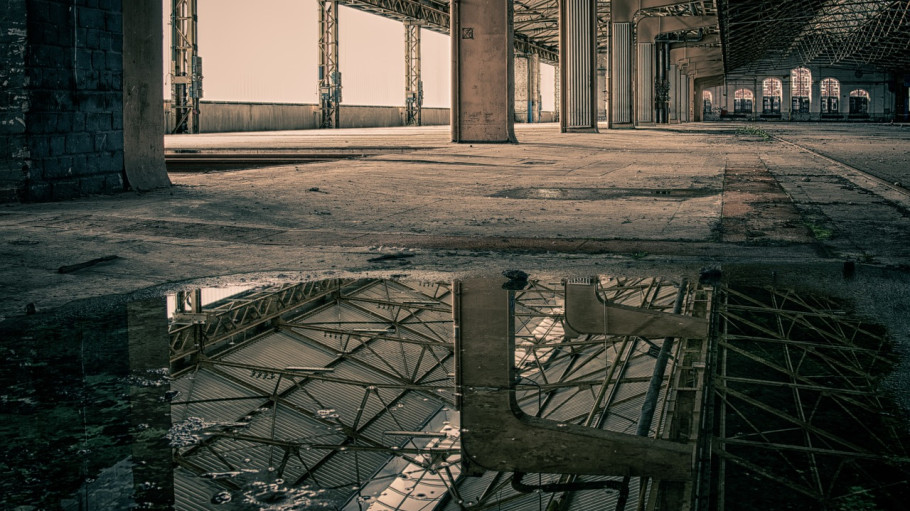
Press releases » European steel industry on the brink: the EU must act now or risk losing manufacturing, warns EUROFER
European steel industry on the brink: the EU must act now or risk losing manufacturing, warns EUROFER
Recent updates

Brussels, 27 November 2024 – The European steel industry is at a critical juncture, facing irreversible decline unless the EU and Member States take immediate action to secure its future and green transition. Despite repeated warnings from the sector, the EU leadership and governments have yet to implement decisive measures to preserve manufacturing and allow green investments across Europe. Recent massive production cuts and closure announcements by European steelmakers show that time has run out. A robust European Steel Action Plan under an EU Clean Industrial Deal cannot wait or manufacturing value chains across Europe will simply vanish, warns the European Steel Association.
"The clock has already struck midnight. How many more plant closures, job losses, and stalled decarbonisation projects will it take before the EU and Member States wake up? Europe’s de-industrialisation is accelerating, with steel, automotive, renewables, and batteries all on the brink. Without immediate action, Europe’s manufacturing base will disappear. We urge the new European Commission and EU governments to stop this bloodshed and adopt swift measures on trade, CBAM, energy and steel scrap, while working on a structural solution to preserve our industry’s competitiveness”, said Axel Eggert, Director General of the European Steel Association (EUROFER).
Key facts highlight the severity of the crisis:
EUROFER calls for an ambitious European Steel Action Plan to address the crisis. Critical measures include:
“This isn’t just about steel; it’s about all the value chains - from automotive to renewables - that depend on it. It’s about Europe’s resilience, prosperity, and climate leadership. Without urgent EU intervention, we face total dependence on China, the US, and other global competitors where industries thrive under favourable conditions. We stand ready to work with the new Commission to prevent this collapse. We need impactful measures now, instead of incremental improvements that fail to address root challenges such as global steel overcapacity and high energy prices", concluded Mr. Eggert.
Contact
Lucia Sali, Spokesperson and Head of Communications, +32 2 738 79 35, (l.sali@eurofer.eu)
About the European Steel Association (EUROFER)
EUROFER AISBL is located in Brussels and was founded in 1976. It represents the entirety of steel production in the European Union. EUROFER members are steel companies and national steel federations throughout the EU. The major steel companies and national steel federation of Turkey, Ukraine and the United Kingdom are associate members.
The European Steel Association is recorded in the EU transparency register: 93038071152-83.
About the European steel industry
The European steel industry is a world leader in innovation and environmental sustainability. It has a turnover of around €191 billion and directly employs around 303,000 highly-skilled people, producing on average 140 million tonnes of steel per year. More than 500 steel production sites across 22 EU Member States provide direct and indirect employment to millions more European citizens. Closely integrated with Europe’s manufacturing and construction industries, steel is the backbone for development, growth and employment in Europe.
Steel is the most versatile industrial material in the world. The thousands of different grades and types of steel developed by the industry make the modern world possible. Steel is 100% recyclable and therefore is a fundamental part of the circular economy. As a basic engineering material, steel is also an essential factor in the development and deployment of innovative, CO2-mitigating technologies, improving resource efficiency and fostering sustainable development in Europe.
Developed with the support of the Offshore Wind Foundation Alliance and European Wind Tower Association, the position paper outlines the strategic importance of wind components for Europe’s green transition and calls for targeted measures to strengthen their role within the NZIA.
Brussels, 2 April 2025 - The latest data unveiled by the OECD in its meeting in Paris draw an extremely worrying picture, where global steel excess capacity is expected to grow from an estimated 602 million tonnes in 2024 to 721 million tonnes by 2027 – over five times the EU's steel production. The European steel industry - already severely hit by the spill-over effects of global overcapacity and the U.S. steel import tariffs - reiterates the crucial need for strict and effective EU post-safeguard measures to ensure its survival.
Brussels, 19 March 2025 – The Steel and Metals Action Plan, unveiled today by the European Commission, provides the right diagnosis to the existential challenges facing the European steel industry. Concrete measures need to follow swiftly to reverse the decline of the sector, re-establish a level playing field with global competitors, and incentivise investment and uptake of green steel in the market.